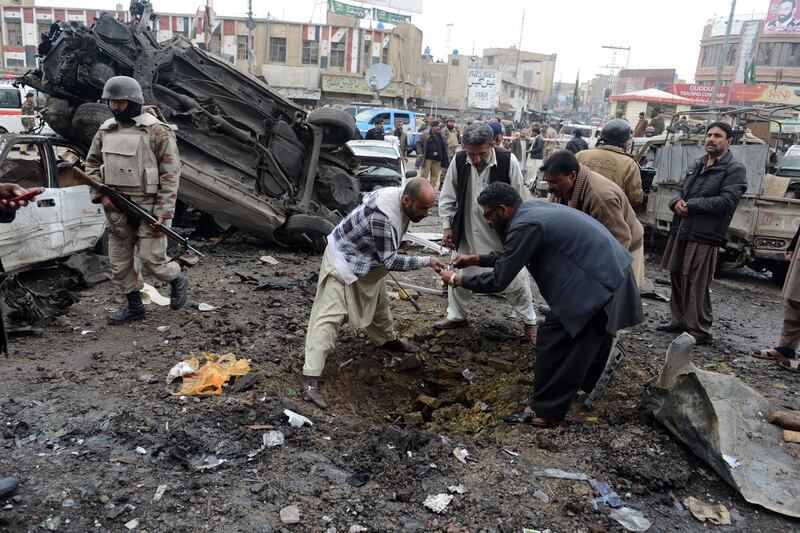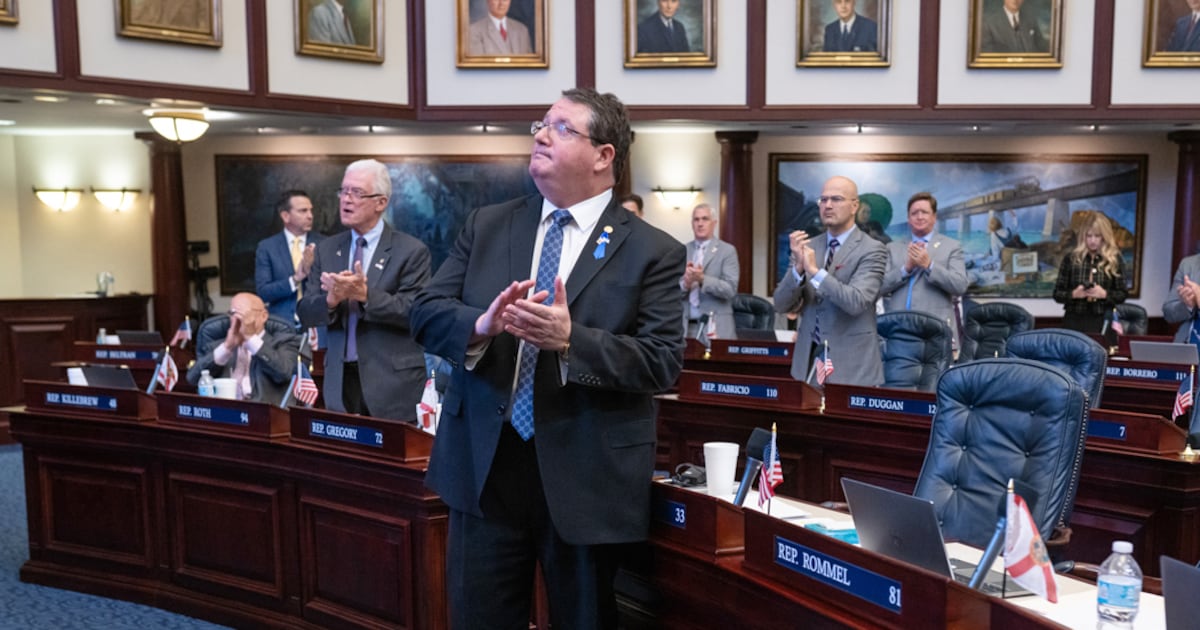It was one of Pakistan’s deadliest days in years. Four bombings in two cities on opposite ends of the country on Thursday left at least 125 dead and hundreds injured, further dimming hopes for peaceful national elections expected in May and putting the country’s minorities on warning.

U.N. Secretary-General Ban Ki-moon has condemned the attacks, saying, “These heinous acts cannot be justified by any cause.”
The first blast occurred a little after 3:30 p.m. An IED planted on a roadside detonated next to a vehicle used by paramilitary forces in a crowded commercial sector of Quetta, Balochistan province’s capital, instantly killing one member of Pakistan’s Frontier Corps.
ADVERTISEMENT
“F.C. personnel were the targets,” investigator Hamid Shakil told The Daily Beast, adding that experts believed 20-25 kilograms of explosives were used to construct the bomb. Pictures from the blast site showed the rubble of several nearby buildings, and mangled cars on the blood-splattered street. By the end of the day, 11 people were dead, including at least two government officials, and more than 40 were injured.
The “United Baloch Army,” an insurgent group that wants Balochistan to secede from Pakistan, has claimed responsibility for the attack. “Dissident groups often target security officials,” says analyst Hasan-Askari Rizvi. “The government lacks a strategy to identify and remove the threat.”
The second attack happened shortly after 5 p.m. at a religious gathering in the country’s northwestern Swat Valley, killing 22 and wounding more than 80. This was the worst attack in Swat since the Pakistan Army declared it free of Taliban influence in 2009, after a two-year military operation. Initially identified as a gas explosion, police have since confirmed that a bomb—possibly using ball bearings for maximum casualties—was remotely detonated. No group has claimed responsibility for this attack. However, law-enforcement authorities believe Pakistan’s Mullah Fazlullah may have ordered the attack. Fazlullah, who is living in Afghanistan’s Kunnar province under the patronage of Afghan intelligence according to Taliban expert Ahmed Rashid, frequently targets Swat. His men attacked 15-year-old activist Malala Yousafzai in October.
The worst attack occurred after nightfall on Thursday at a snooker club in Quetta in an area frequented by Hazara Shia Muslims. A suicide bomber entered the club, located in the basement of a four-story building, and detonated approximately 10 kilograms of explosives, causing the building to collapse. As people, including police, media and paramedics, rushed to the site to help the injured and recover the deceased, a second bomb detonated.

Investigating officer Shakil says the vast majority of the casualties were caused by the second blast. “The second bomber took advantage of the confusion caused by the first and detonated explosives placed inside a car,” he says. The second explosion, which took place roughly 10 minutes after the first, resulted in the deaths of several police officials, two journalists, and a paramedic. According to Shakil, the number of deceased will likely increase from the current toll of 92. “The hospitals treating the injured are at maximum capacity. A lot of the injured—I would say almost half—are in critical condition.” He said the casualties could have been a lot lower if people had stayed on the sidelines and waited for police to clear the area. The twin attacks in Quetta, he says, specifically targeted the local minority Shia (or Hazara) community. “There is no other explanation.”
Pakistan’s Shia community constitutes around 20 percent of Pakistan’s population of 180 million, with the subset Hazara community numbering less than 500,000 according to the last census, held in 2001. Prior to Thursday’s attacks, militants have been engaged in a systematic pogrom of Shia Muslims in Pakistan—with more than 400 killed in 2012 alone, according to Human Rights Watch.

Shortly after the snooker-club blast, Lashkar-e-Jhangvi, an extremist Sunni Muslim terrorist group, claimed responsibility. The sectarian organization has been banned in Pakistan since 2001, but often targets minorities across the country. Its cofounder, Malik Ishaq, was recently freed from police custody after the courts found insufficient evidence to hold him.
“This is a governance issue,” says analyst Rivzi. “Unless the government is willing to step up and take charge, such incidents will become routine.” He says the provincial government lacks both the will and the capacity to act against insurgents. “Both dissidents and religious extremists have grown bold due to the government’s inaction of the past two years.”
The provincial government of Balochistan, which bore the brunt of Thursday’s carnage, has announced three days of mourning and $10,279 for the families of each civilian killed and $20,558 for next of kin of police officers who died in the line of fire.
The most recent attacks have prompted demands from minority communities for government protection. Shia leaders in Quetta have asked the military to step in and seize control from the ineffectual provincial government. Police are being urged to set up checkposts around locations with large Shia populations. With another bombing in Quetta today—no casualties have been reported—these demands might just be too little, too late.






